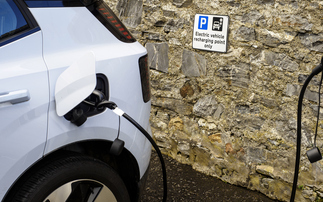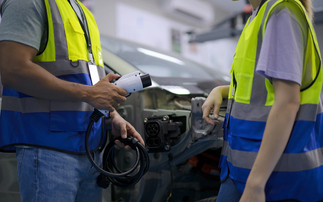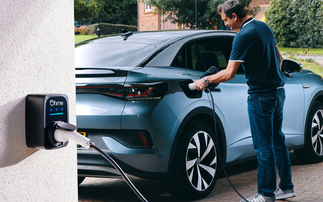Strong, clear climate policies across power, transport and heavy industry, would help to support businesses to achieve climate goals, argues Volvo Car's Anders Kärrberg
As we approach the fifth anniversary of the signing of the Paris Agreement, I've been reflecting on the climate action journey that Volvo Cars has been on since 2015. When world governments took responsibility to cut greenhouse gas emissions, we realised that we had to step up too. Planetary safety needed to be as important to us as vehicle safety has been since we began producing cars in 1927.
As a mobility provider, we recognise that we are part of the problem of climate change and have a responsibility to act. Moreover, if we want to remain a profitable business and attractive brand we need to transform into a company that is part of the solution. In short, climate action is critical to our future success.
So, in 2016, we set an ambition to have global climate neutral manufacturing operations by 2025. This was followed by announcements that we would phase-out pure internal combustion engine vehicles and commit to electrification, with the aim for 50 per cent of our sales to be from fully electric vehicles (BEVs) by 2025.
Even now, this sales ambition is a pretty bold statement from an established automotive manufacturer. However, as our CEO, Håkan Samuelsson, said at the time, we believe that this strategy is the right one, not least as consumer demand for electric vehicles will only increase. The strength of this demand has been shown during the pandemic, with sales of our electrified vehicles doubling in the first 10 months of 2020, despite a decrease in overall sales.
But, electrification alone is not enough: we need to address emissions across our value chain, and take action now. So, last year, at the launch of our first fully electric vehicle, XC40 Recharge, we stated our intention to become a climate neutral company by 2040. In the interim, we'reaiming to reduce our lifecycle carbon emissions per vehicle by 40 per centbetween 2018-2025, through tackling emissions within our supply chain and own operations - as well as from the usage of our cars. We've made some good early progress with emissions being reducedby three per cent in 2019, and we'reproud that our plan was recently approved by the Science Based Targets Initiative (SBTI) as being in line with the goals of Paris.
There are of course challenges in reaching our climate goals. Several of these are related to the fact that transformational shiftsare required in areas that we don't have control over - particularly the global expansion of renewable energy. For instance, our ability to source renewable power in our plants varies by region. It has been easier in Europe but more challenging in the US and China. Our global plants are currently powered by 86 per cent climate neutral electricity, but reaching 100 per cent climate neutral energy (including heating) will require an increase in the production and accessibility of renewable power.
As our tailpipe emissions decrease, through electrification, action within our supply chain becomes even more critical. This is no mean feat, given that our products use large amounts of steel and aluminium. We have called on our suppliers to switch to 100 per cent renewableenergy by 2025, but they may well face similar accessibility challenges. In addition, we are aiming to reduce supply chain emissions by embracing the circular economy, including through remanufacturing parts and components and greater use of recycled material. We estimate that this circular approach will reduce emissions by 2.5 million tonnes annually from 2025.However, wider availability of renewable energy is key to tackling the bulk of our supply chain emissions.
This challenge is not restricted to our operations and supply chain. The true carbon impact of electric vehicles is dependent on how the electricity which powers them is generated. In order to reduce the lifecycle emissions of our electric cars during their use phase a strong global supply of renewable power is required.
In the run up to COP26, the most important climate summit since Paris, governments need to step up and support a rapid transition to renewable power and zero emission mobility. They need to do this through clear long-term policies and direction. In this respect, we welcome the net zero commitments from Japan, South Korea, China, and the EU, as well as theUK's recent announcement to ban the sale of pure petrol and diesel engine cars from 2030.
As Håkan Samuelsson said at the recent FT Future of the Car Summit:"While temporary incentives can help encourage industry to develop in the right way, it could be more efficient for governments to set a clear agenda towards an electric future…. Europe has a big opportunity to lead the transition to sustainable mobility, and governments and companies should work together to make it happen."
As we look ahead to the next decade by when global emissions must be halved, I feel it is important to state that for business, this is not only possible, but also the best way to do business. The Paris Agreement has set many companies on course to cut their emissions at the pace and scale necessary. Now is the time for governments to once again capture the Agreement's spirit of positive transformation by implementing strong, clear climate policies across power, transport and heavy industry, and support businesses like ours to achieve our climate goals and be part of the solution.
Anders Kärrberg is head of global sustainability at Volvo Cars







